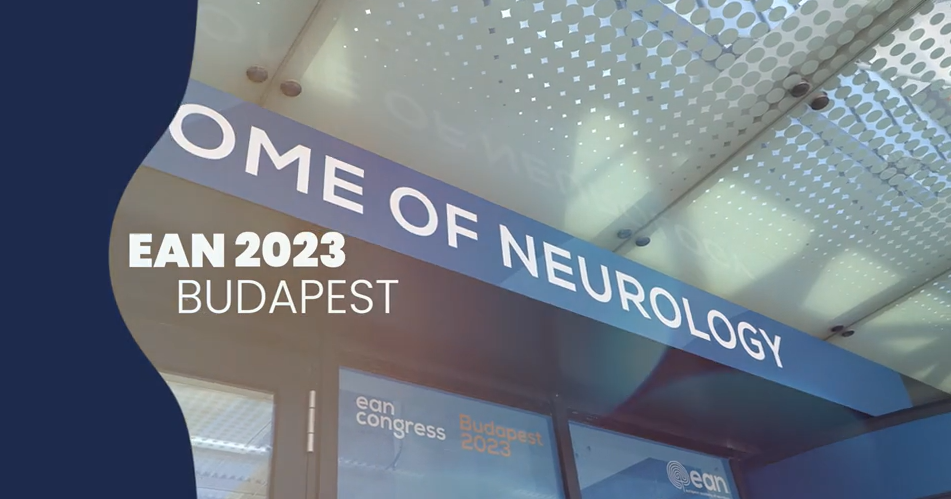Prof Stewart Tepper (Geisal School of Medicine – Dartmouth, Hanover, NH, USA) summarizes the pivotal results of the PROGRESS phase 3 trial, evaluating the efficacy, safety, and tolerability of atogepant for preventive treatment of chronic migraine (CM). This study has very important clinical indications for the use of G pants in prevention of migraine.
Disclosures: Stewart Tepper has received grants for research (no personal compensation) from Allergan/Abbvie, Amgen, Eli Lilly, Lundbeck, Neurolief, Novartis, Satsuma and Zosano. He is a consultant and/or member of the advisory boards (honoraria) for Aeon, Allergan/Abbvie, Alphasights, Amgen, Aruene, Atheneum, Axsome Therapeutics, Becker Pharmaceutical Consulting, BioDelivery Sciences International, Biohaven, ClearView Healthcare Partners, ClickTherapeutics, CoolTech, CRG, Decision Resources, Defined Health, DRG, Eli Lilly, ExpertConnect, FCB Health, Fenix, GLG, Guidepoint Global, Health Advances, Health Science Communications, HMP Communications, Impel, Initiatior Pharma, InteractiveForums, Keyquest, Ki Health Partners, Krog and Partners, Lundbeck, M3 Global Research, Magnolia Innovation, MJH Holdings, Miravo Healthcare, Neurofront Therapeutics, Neurolief, Novartis, P Value Communications, Pain Insights, Inc, Palion Medical, Pulmatrix, Putnam Associates, Rehaler, SAI MedPartners, Satsuma, Slingshot Insights, Spherix Global Insights, Strategy Inc, Synapse Medical Communication, System Analytic, Taylor and Francis, Tegus, Teva, Theranica, Tremeau, Trinity Partners, Unity HA, Vial, XOC and Zosano. He receives his salary from Dartmouth-Hitchcock Medical Center and Thomas Jefferson University. He has received CME honoraria from the American Academy of Neurology, American Headache Society, Annenberg Center for Health Sciences, Catamount Medical Education, Diamond Headache Clinic, Forefront Collaborative, Haymarket Medical Education, HMP Global, Medical Education Speakers Network, Medical Learning Institute Peerview, Migraine Association of Ireland, Miller Medical Education, National Association for Continuing Education, North American Center for CME, The Ohio State University, Physicians’ Education Resource, PlatformQ Education, Primed, Vindico Medical Education and WebMD/Medscape.
Support: Interview and filming supported by Touch Medical Media. Interview conducted by Sophie Nickelson.
Filmed as a highlight of the 75thAAN Annual Meeting, 2023
Transcript
Hello, I’m Stewart Tepper. I’m a professor of neurology at the Geisel School of Medicine at Dartmouth in Hanover, New Hampshire.
Another very important study was a study of Atogepant for the prevention of chronic migraine.
Two G pants currently have FDA and EMA approval for the prevention of episodic migraine meaning headaches less than fifteen headache days per month, and they are Rhemejapant and Atogepant.
This pivotal study was a study of Atogepant in 60-milligram doses versus placebo, for the prevention of chronic migraine, meaning headache at least fifteen days per month with at least eight days per month meeting or being associated with migraine by the international classification of headache disorders, the third edition criteria.
The primary endpoint was the change from baseline in mean monthly migraine days compared to placebo, across the entire three months, so from week twelve through, excuse me, so from week one, through week twelve.
Interestingly, in this study, the chronic migraine patients that were evaluated were a little bit more severe than those seen in the monoclonal antibody studies, in that two-thirds of them were overusing acute medicine that compares to 40% for example in the Erenimab trials, 83% of these patients had previously tried preventive medicines, average monthly migraine days was a bit higher than previous chronic migraine trials at nineteen, and they had very significant decreases in quality of life through the MSQ.
The primary endpoint was a reduction from the nineteen days by six point nine days for the Atogepant and five point one days for placebo, again very statistically significant, and on average that is one extra week’s worth of migraine free days per month, so a three month’s worth per year, very significant clinically, and as a result of this study, the FDA did approve Atogepant for the prevention of chronic migraine, extending the indication basically to all of migraine, episodic and chronic with and without aura, with and without medication overuse, and pretty much the same indication as for the monoclonal antibodies in the United States. A very important study with very important clinical indications for our use of G pants in prevention.









